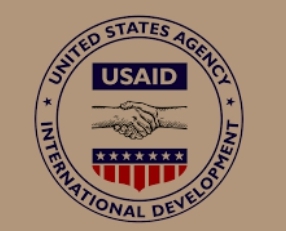The economic situation is getting more severe in many countries especially Nigeria, prices of goods and services have increased beyond proportion. Regular individuals are no longer able to afford basic necessities, as many groan over this situation, others are super excited over the opportunity that earning from the comfort of home brings.
Today we will explain how easy it is for Nigerians to profit from the world of premium domain names. Millions of newly registered businesses, especially those in the USA, Canada, United Kingdom, Switzerland, Australia and many other countries are always looking for the best and most suitable names for their businesses, these companies are most times willing to pay a high premium for these names.
That’s where you come in; the process is not in any way complicated, you join a domain discount club where premium domain names are sold for very cheap to members only. As a member of the discount club, you in turn click on the resell button to sell the domain you purchased for as much as 10 to 25 times the amount you purchased it.
It is now possible for you to live in Nigeria and earn in US Dollars LEGITIMATELY, as a matter of fact this opportunity is available to anyone regardless of where you live.
How it works:
What is a domain name: A domain name is the address of a website.
What is a premium domain name: A short, catchy, easy to remember domain name, these are always expensive and rare to find.
Just in case you are not aware, names like Uber, Tesla, prime, were all purchased from individuals just like you at the discount clubs for millions of Dollars. You simply buy a premium domain name from a discount club like Travads.com, you tell Travads how much you wish to sell your new premium domain name for; add your bank details or how you wish to be paid in your backend. The selling period can take anywhere from days to a few weeks.
Below are a few of the domains that were recently sold to the final buyer, keep in mind that none of these names was purchased at the discount club for more than $600, this means the least member earned 5 times his investment.
Lemuria.com sold on July 6th $8,602(as you can tell, $8,602 is over ₦5.2 million Naira)
Frijoles.com sold July 6th for $6,105
Maship.com sold June 6 for $4,111
Joysmash.com June 27th $2,500
Sendblast.com May 11 for $3,662
Watchpoint.com June 1st $4,090
Varato.com sold July 5 $3,988
Buying and selling premium domain names is indeed a lucrative business opportunity, it has helped financially liberate many individuals and definitely worth trying out.
How to benefit:
The Travads.com team members are experts at helping those who wish to be successful in the business of premium domain names; this is a tested and proven business. One of the unique advantages of the business is that it is 100% transparent and legitimate. You honestly can’t go wrong, as a matter of fact; the demand for these premium names far exceeds the supply.
How to begin the process:
Click here to sign up, be patient for approval which could take anywhere from 3-8 business day, as soon as you are approved, reach out to any of the premium domain specialists to help you select a name that will be quick to sell and obviously generate significant profit.
You will learn how to purchase premium domain names for as low as $300-$500 and resell for as much as $10,000 to $15,000
You do not need to be a computer or IT expert to do this, so long as you can operate a smartphone you can do this.
As soon as you get approved, there is a dedicated support team that will be with you every step of the way.
Nigerians can now earn US Dollars by acquiring premium domain names, most clients earn about $7,000 to $10,000, all paid in US Dollars. Click here to learn how to start.










